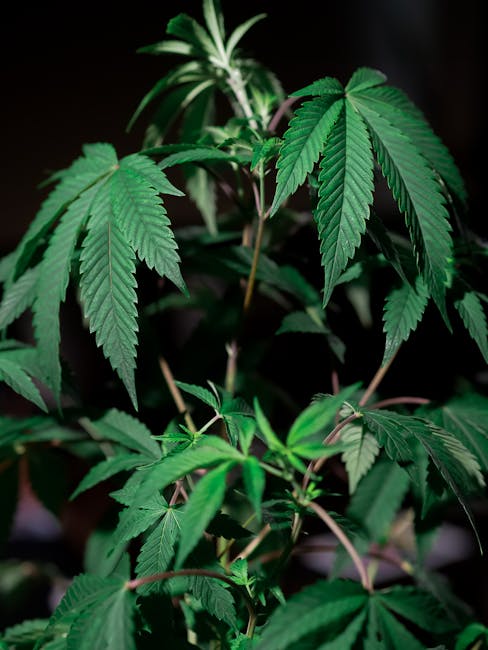Prague, the capital city of the Czech Republic, has a complex approach to handling drug sales. The city’s police force has implemented various strategies to combat the issue, while also acknowledging the need for a balanced approach that considers the health and well-being of individuals involved.
Legislation and Policy
Czech law prohibits the possession, sale, and production of illegal drugs, with penalties ranging from fines to imprisonment. However, the country has also introduced measures to reduce the harm caused by drug use, such as needle exchange programs and methadone substitution therapy.
Police Strategies
The Prague police employ a range of tactics to tackle drug sales, including:
- Undercover operations to identify and apprehend dealers
- Intelligence gathering to disrupt supply chains
- Collaboration with international partners to combat cross-border trafficking
- Community policing to engage with local residents and gather information
Challenges and Controversies
Despite these efforts, the Prague police face challenges in effectively addressing drug sales. Some critics argue that the current approach is too focused on enforcement, rather than addressing the root causes of addiction and providing support for individuals struggling with substance abuse.
Alternative Approaches
In recent years, there has been a growing debate about the potential benefits of decriminalizing or legalizing certain drugs, such as cannabis. Proponents argue that this could help reduce the burden on the criminal justice system and allow for more resources to be devoted to health and social services.
Drug-Related Crime Statistics
According to the Czech Republic’s Ministry of Interior, the number of drug-related crimes in Prague has been steadily decreasing over the past few years. In 2020, the police reported a total of 1,436 drug-related crimes, which represents a 15% decrease compared to the previous year. The most common drug-related crimes in Prague are possession of illegal substances, followed by drug sales and trafficking.
Law Enforcement Efforts
The Prague police have been working to improve their response to drug-related crimes, with a focus on targeting organized crime groups and disrupting supply chains. In 2020, the police seized over 1 ton of cannabis, 100 kg of cocaine, and 50 kg of heroin, with a total street value of over 10 million euros. The police have also been working to increase cooperation with international partners, including Europol and Interpol, to share intelligence and best practices in combating drug trafficking.
Community-Based Initiatives
In addition to law enforcement efforts, the city of Prague has also been working to implement community-based initiatives to prevent drug use and support individuals struggling with addiction. These initiatives include education and prevention programs, counseling services, and harm reduction programs such as needle exchange and methadone substitution therapy. The city has also established a number of drop-in centers and outreach programs, which provide support and services to individuals who are struggling with addiction.
Challenges Ahead
Despite the progress that has been made, there are still a number of challenges ahead in addressing drug sales in Prague. One of the main challenges is the ongoing issue of organized crime groups, which continue to play a significant role in the drug trade. The police must also balance their enforcement efforts with the need to provide support and services to individuals who are struggling with addiction. Additionally, the city must continue to work to address the root causes of addiction, including poverty, lack of education and job opportunities, and social isolation.
Collaboration with Social Services
The Prague police are also working closely with social services to provide support to individuals struggling with addiction. This includes referring individuals to counseling services, rehabilitation programs, and other forms of support. By working together, the police and social services can help individuals to overcome their addiction and reduce the likelihood of reoffending.
Harm Reduction Strategies
In addition to enforcement efforts, the city of Prague is also implementing harm reduction strategies to reduce the risks associated with drug use. This includes providing access to clean needles and syringes, as well as methadone substitution therapy. These programs help to reduce the spread of infectious diseases, such as HIV and hepatitis, and can also help to reduce the number of overdose deaths.
Public Awareness Campaigns
The city of Prague is also running public awareness campaigns to educate people about the risks associated with drug use. These campaigns include posters, leaflets, and social media ads, and are targeted at young people, who are often most vulnerable to the dangers of drug use. By raising awareness of the risks, the city hopes to prevent people from getting involved in drug use in the first place.
International Cooperation
The Prague police are also working with international partners to combat drug trafficking. This includes sharing intelligence and best practices with other countries, as well as participating in international operations to disrupt supply chains. By working together, countries can help to reduce the global demand for illicit drugs and make it more difficult for traffickers to operate.
Technological Innovations
The Prague police are also using technological innovations to help combat drug sales. This includes using digital forensics to track and analyze online drug markets, as well as using social media monitoring tools to identify and disrupt online drug sales. By leveraging technology, the police can stay one step ahead of traffickers and help to reduce the availability of illicit drugs.
Future Directions
Looking to the future, the Prague police will continue to evolve and adapt their strategies to address the changing nature of the drug trade. This may include exploring new technologies, such as artificial intelligence and blockchain, to help track and disrupt supply chains. The police will also continue to work closely with social services and other partners to provide support to individuals struggling with addiction and to address the root causes of addiction.
Recommendations
Based on the experiences of the Prague police, several recommendations can be made for other cities looking to address drug sales. These include:
- Implementing a comprehensive approach that includes enforcement, harm reduction, and social services
- Collaborating with international partners to share intelligence and best practices
- Using technological innovations to track and disrupt online drug markets
- Providing support and services to individuals struggling with addiction
- Addressing the root causes of addiction, such as poverty and lack of education and job opportunities
Final Thoughts
In final thoughts, addressing drug sales in Prague requires a comprehensive and multifaceted approach. By working together and using a range of strategies, the city can help to reduce the availability of illicit drugs and support individuals struggling with addiction. The experiences of the Prague police can serve as a model for other cities looking to address this complex issue.







Overall, I think this article does a great job of highlighting the complexities of handling drug sales in Prague. It\
The debate about decriminalizing or legalizing certain drugs is a very interesting one. I think it\
I found this article to be very informative and well-researched. The approach that Prague is taking to handle drug sales is quite complex and it\
The statistics mentioned in the article are quite surprising. A 15% decrease in drug-related crimes is definitely a step in the right direction. I hope that other cities can learn from Prague\
I completely agree with the critics who argue that the current approach is too focused on enforcement. We need to start addressing the root causes of addiction and providing more support for individuals struggling with substance abuse.